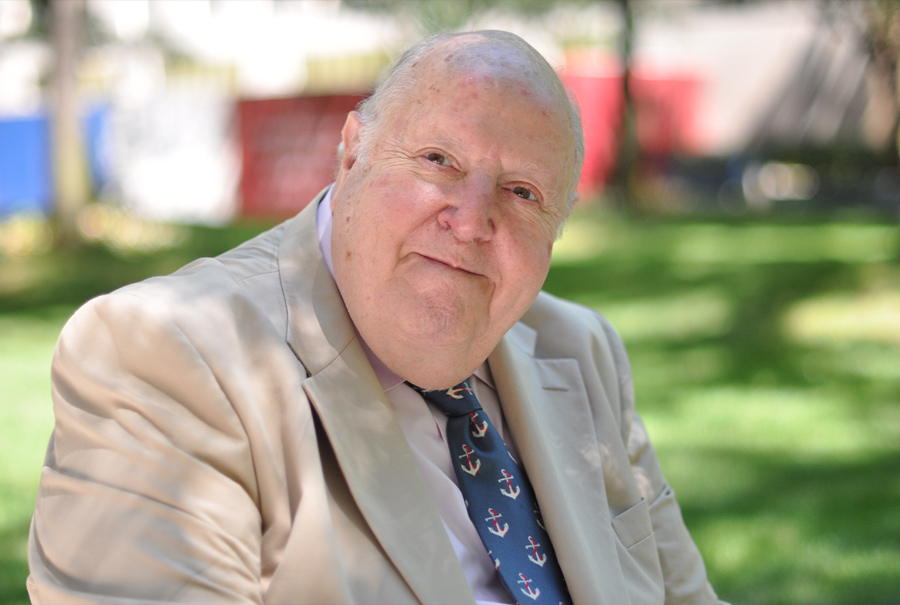
John D. Calamari Distinguished Professor of Law Emeritus
Joseph C. Sweeney was a member of the Fordham Law faculty for 47 years—from 1966 until his retirement in 2013. He died on July 21 at the age of 87.
Sweeney joined Fordham Law School as a professor of law in the fall of 1966 and helped co-found the Fordham International Law Journal (FILJ). It remains one of the most frequently cited student-edited legal publications dedicated to the study of international law. The FILJ office was named in honor of Sweeney when the new Law School building was completed in 2014 on the Lincoln Center campus.
During his 47 years as a professor, Sweeney taught a number of courses at Fordham Law, including International Business Transactions, International Conflict Dispute Resolution, History of the Supreme Court, Torts, and Admiralty. He also taught students through the Fordham summer program in Ireland in the program’s first five years. Sweeney was also the author of a number of books, including The Law of Marine Collision, with Nicholas Healy.
Prior to becoming part of the Fordham Law family, Sweeney joined the U.S. Naval Reserve and became a JAG officer in 1957. He served on the legal staff of the Destroyer Force of the Atlantic Fleet at Newport and was later selected to be an instructor at the Naval Justice School. He left active duty in June 1962 to practice law at Haight, Gardner, Poor & Havens.
In 1970, Sweeney assisted the late Ambassador Richard D. Kearney on answers from the Department of State to questionnaires from the United Nations Conference on Trade and Development (UNCTAD) and the United Nations Commission on International Trade Law (UNCITRAL). This work was the beginning of his apprenticeship as a diplomat over the next 25 years, representing the United States at multiple diplomatic conferences and negotiations. He was also the visiting E.S. Land Professor of Maritime Affairs at Naval War College in 1972 and a distinguished visiting professor at U.S. Merchant Marine Academy in 1982.
Sweeney grew up in Boston and attended Boston Latin School. He graduated from Harvard University in 1954, earned a J.D. from Boston University in 1957, and received an LL.M. in international law from Columbia University in 1963.
Professor Sweeney is survived by his wife, Alice.
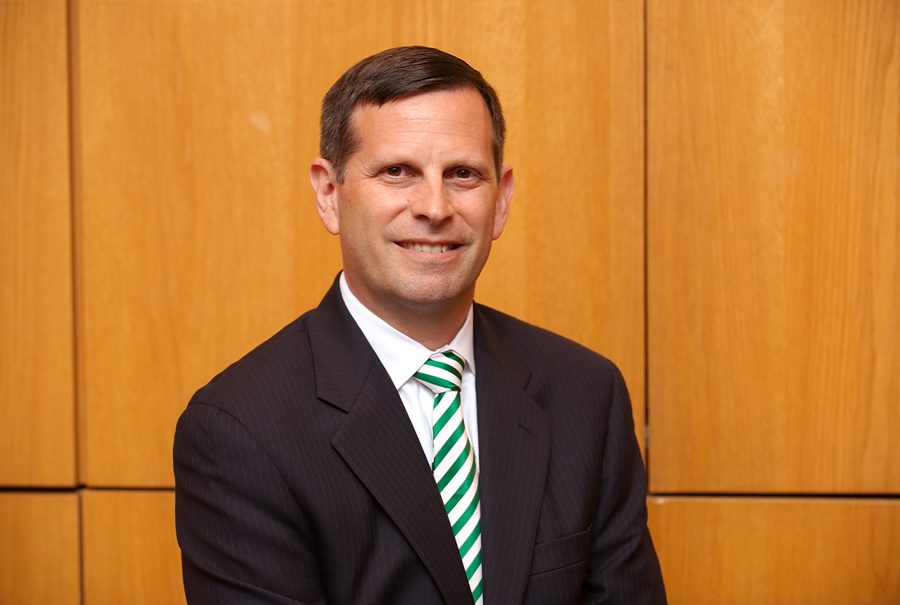
Stanley D. and Nikki Waxberg Chair and Professor of Law; Founding Academic Director, Center on Law and Information Policy
Joel R. Reidenberg was a pioneer in the legal academy on internet privacy and cybersecurity. He passed away on April 21 at age 59 after a long and valiant battle with leukemia.
Professor Reidenberg held the Stanley D. and Nikki Waxberg Chair in Law and was the founding academic director of the Center on Law and Information Policy (CLIP). He worked on a wide range of issues and questions, including the intelligibility of privacy policies, legislative protections from privacy harms, government surveillance in the name of national security, privacy in online gaming, student data protection, EU data protection efforts, transnational data flows, and algorithmic decision-making. His scholarship appeared in leading U.S. law journals, and he published widely in Europe.
Professor Reidenberg served as the inaugural Microsoft Visiting Professor of Information Technology Policy at Princeton University, teaching in the computer science department, and was a visiting faculty member teaching cybersecurity policy at Princeton’s Woodrow Wilson School. He also taught at the Université de Paris-Sorbonne and the Institut d’études Politiques de Paris. Formerly, he served as the associate vice president for academic affairs and associate chief academic officer of Fordham University. Professor Reidenberg was also a former president of the University’s Faculty Senate.
In 2016, Professor Reidenberg was honored by the Future of Privacy Forum with its 7th Annual Privacy Papers for Policymakers Award. In 2019, he received the BCLT Privacy Award from the Berkeley Center for Law & Technology. The award recognized his seminal scholarship, innovative policy entrepreneurship, and tireless support for the privacy community.
Prior to joining the Fordham faculty in 1990, Professor Reidenberg was an associate at the law firm Debevoise & Plimpton. He was a graduate of Dartmouth College, earned a J.D. from Columbia University, and earned a Ph.D. in law from the Université de Paris–Sorbonne. Professor Reidenberg was admitted to the Bars of New York and the District of Columbia.
Professor Reidenberg is survived by his wife, Pascale; his two sons, Jeremy and David; his daughter-in-law, Caitlin; his grandchildren, Luca and Sophie; and his mother, June.
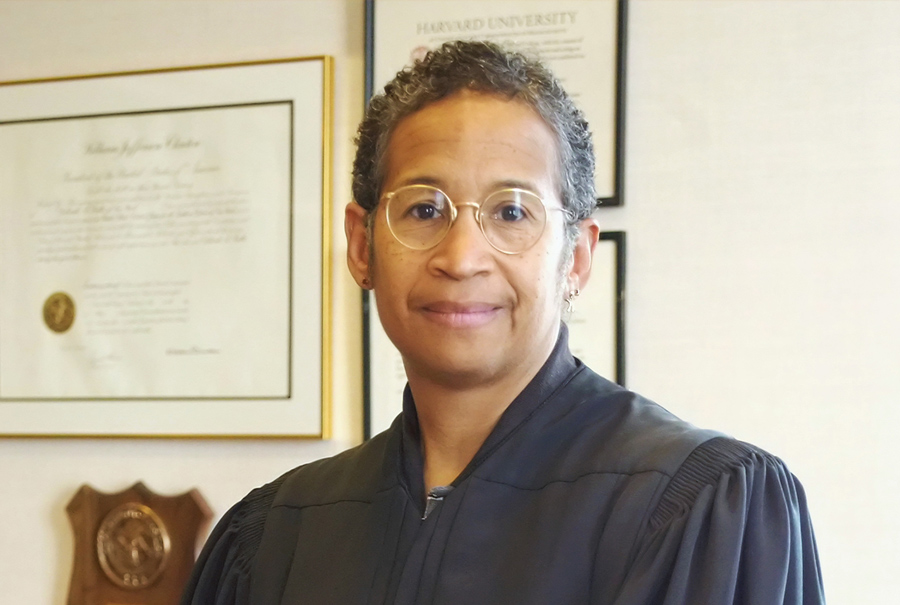
Professor of Law Emeritus
Judge Deborah Batts, the Law School’s first African American faculty member and a U.S. District Judge for the Southern District of New York, passed away in her sleep on February 2 at the age of 72.
Batts joined Fordham Law School as a professor of law in 1984 and became a tenured associate professor of law in May 1990. She taught Property, Legal Research and Writing, Federal Criminal Pre-Trial Procedure, Domestic Relations, and an advanced Domestic Relations Seminar on nontraditional families until 1994. She resigned her tenure that year and became the first openly LGBTQ judge on the federal bench after being nominated by President Bill Clinton. Batts later returned to Fordham as an adjunct professor, teaching Trial Advocacy during the course of her 25-year career on the bench. She was the main speaker at the Fordham Law 100 Year of Women event in 2019 titled “Women on the Record: Who Speaks and Why?—Women in Criminal Law.”
Batts received her undergraduate degree from Radcliffe College in 1969 and graduated from Harvard Law School in 1972. Upon graduation, she clerked for Judge Pierce, then a U.S. District Court Judge for the Southern District of New York. In 1973, Batts became an associate at Cravath, Swaine & Moore in the litigation department. In 1979, she became an assistant U.S. attorney in the Southern District of New York in the Criminal Division.
Since 1973, Batts had been a member of various bar associations, including the Bar Association of the City of New York, the Metropolitan Black Bar Association, and the Lesbian and Gay Law Association of Greater New York. From 1990 to 1991, Batts served as special associate counsel of the Department of Investigation of the City of New York. From 1990 to 1994, she was a commissioner on the Law Revision Commission, State of New York. In June 2001, she was a team member of the Crowley Program in International Human Rights’ Mission to Ghana, West Africa, to observe the impact on the status of women in the area of inheritance of PNDCL 111, which passed in 1985.
Batts is survived by her wife, Dr. Gwen Zornberg, and her children, James and Alexandra McCown.
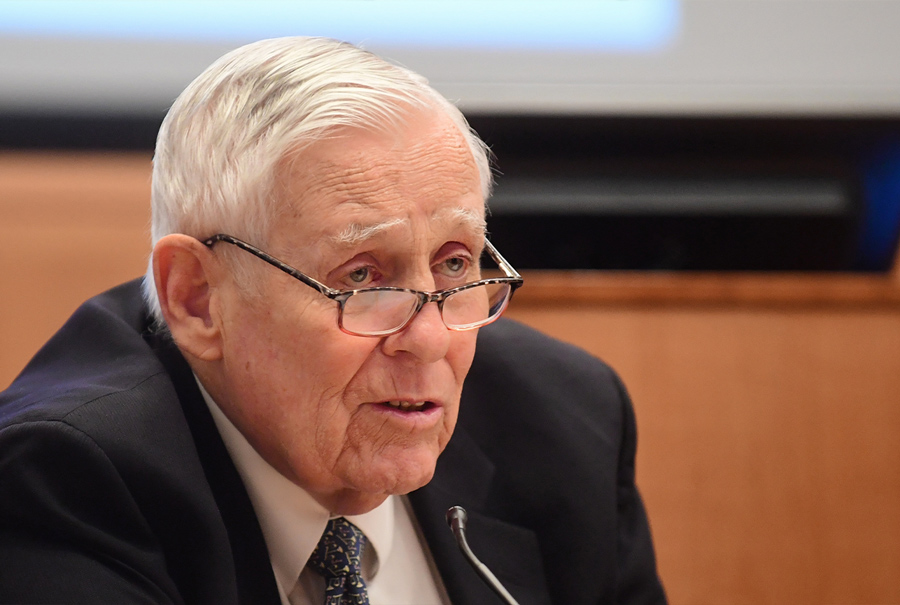
Judge Kevin Thomas Duffy FCRH ’54, LAW ’58, who presided over many high-profile federal cases—including the 1993 trial of the Islamic militants who were convicted for the attacks on the World Trade Center—died on April 1 at the age of 87 due to complications from COVID-19.
While Duffy may be most widely remembered for presiding over the World Trade Center bombing case, he also oversaw a trial in the 1990s involving an aborted plot to blow up as many as a dozen American airliners over the Pacific Ocean. In addition, in the 1970s, he heard a contentious case over cleaning up New York City’s air, and in the 1990s he presided over case involving the exclusion of an Irish gay and lesbian group from the line of march in the city’s annual St. Patrick’s Day parade. Duffy also presided in 1983 at one of several trials stemming from the 1981 shootout between the police and Black Liberation Army and other radicals in Rockland County, N.Y., in which a guard and two officers were killed.
Prior to Duffy’s appointment to the federal bench, he was an assistant United States attorney in Manhattan and a lawyer in private practice. In September 1972, he was serving as the administrator of the New York regional office of the Securities and Exchange Commission when President Richard M. Nixon nominated him to the United States Court for the Southern District of New York.
Duffy was honored for his career on the bench in the Fordham Intellectual Property, Media & Entertainment Law Journal. In 2017, the Feerick Center for Social Justice presented Duffy with the George J. Mitchell Lifetime Public Service Award.
Duffy was born in the Bronx and earned his bachelor’s degree from Fordham University in 1954 and a bachelor of laws from Fordham Law School in 1958. He is survived by his wife, Judge Irene Krumeich Duffy ’57; daughter, Irene Moira Lueling; two sons, Kevin Duffy Jr. ’91 and Gavin Duffy FCLC ’89 ; two sisters, Marie Heslin and Patricia McKeon; and eight grandchildren. His son Patrick, married to Charisse Lee ’00, died in 2017.
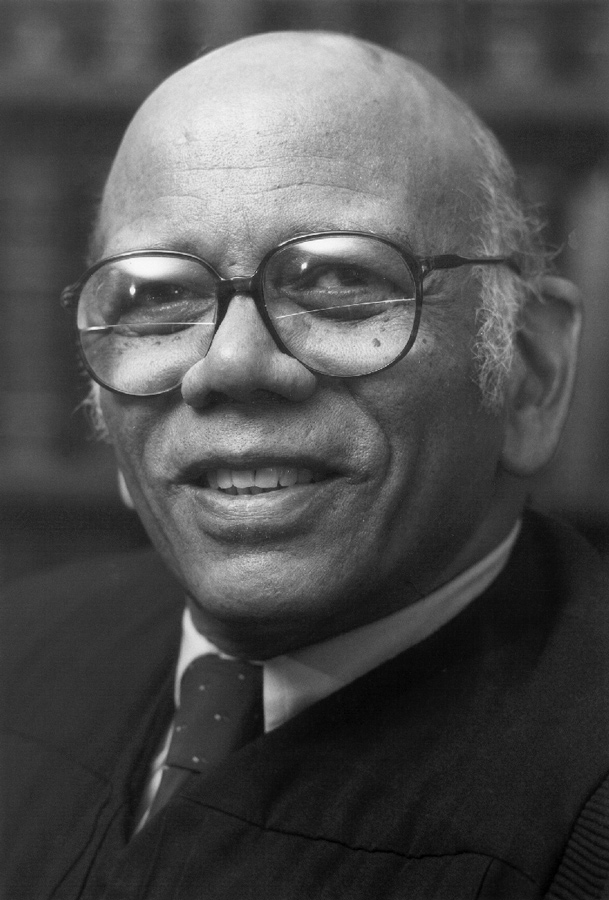
Judge Lawrence Pierce ’51 passed away on February 5 at the age of 95.
Pierce had an illustrious career as a federal district court judge, then a circuit court judge for nearly 25 years. When he was appointed to the Second Circuit Court of Appeals, he became the third African American, following Thurgood Marshall and Amalya L. Kearse, and the third Fordham Law alumnus to serve on the court.
Pierce was appointed to the U.S. District Court for the Southern District of New York by President Richard Nixon in 1971, the first Republican appointee to the federal bench in the New York area. Ten years later, he was appointed to the U.S. Court of Appeals for the Second Circuit by President Ronald Reagan. Prior to taking the bench, he held numerous criminal law positions in New York. He also was a visiting professor of criminal law (1970–71) at the Graduate School of Criminal Justice, State University of New York at Albany.
Pierce was a U.S. Delegate to the United Nations Conference on Crime Prevention in Japan. He was a participant in the Conference on Legal Aid and Access to the Courts held in South Africa and Kenya in 1974.
From 1979 to 1981, Pierce served on the U.S. Foreign Intelligence Surveillance Court, the only African American member to sit upon that bench. After retiring from the bench in 1995, he served as director of the United States Agency for the Cambodian Court Training Project.
Pierce served with the 92nd Infantry Division in Italy during World War II and was honorably discharged as sergeant. After the war, he graduated cum laude from St. Joseph’s University. In 1951, he graduated from Fordham Law School, where he served as an associate editor of the Fordham Law Review.
In 1982, Pierce was awarded an honorary degree from Fordham University; in 1983, he received the Medal of Achievement, the Fordham Law Alumni Association’s highest honor; and in 1994, he received the Fordham Law Review’s Leonard F. Manning Achievement Award. From 1985 until 1991, he served as a Fordham University trustee. For his long career devoted to public service, Judge Pierce received the Life of Commitment Award at the Feerick Center for Social Justice Awards and Benefit Reception in 2015.
Terry Smith, Former Professor of Fordham Law School
Daniel Zane ’48
Patrick J. Fogarty ’54
Donald E. Belfi ’60
Leonard Sobelman ’60
Mary Rodgers Van Orman ’61
William H. McKenna ’61
Stuart A. McKeever ’62
John P. Boland ’64
Richard M. Cummins ’64
William Pitassy ’71
Donald T. Carroll ’73
Stephen Lawrence Reineke ’73
Honorable Andrew P. Bivona ’74
Edward Roger Evans ’74
Terrence J. O’Rourke ’75
Eugenia Manning Schmidley ’77
Kathleen Veigh O’Brien ’78
Jeanne Ann O’Connor ’78
Charles Adams ’81
Kevin Leifer ’83
Anthony Uva ’84
William T. Morris ’86
Christopher P. McCormack ’87
Henri Gueron ’93
John P. Collins ’94
McKenzie Livingston ’04